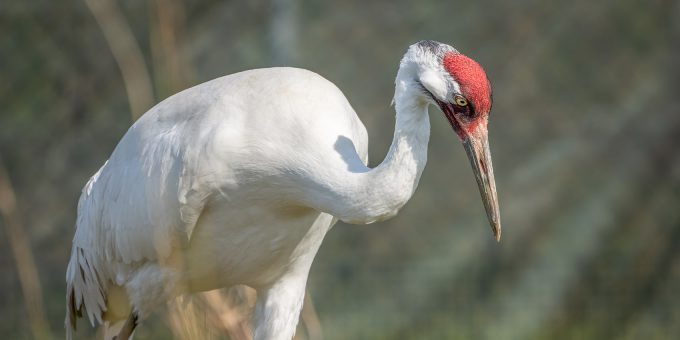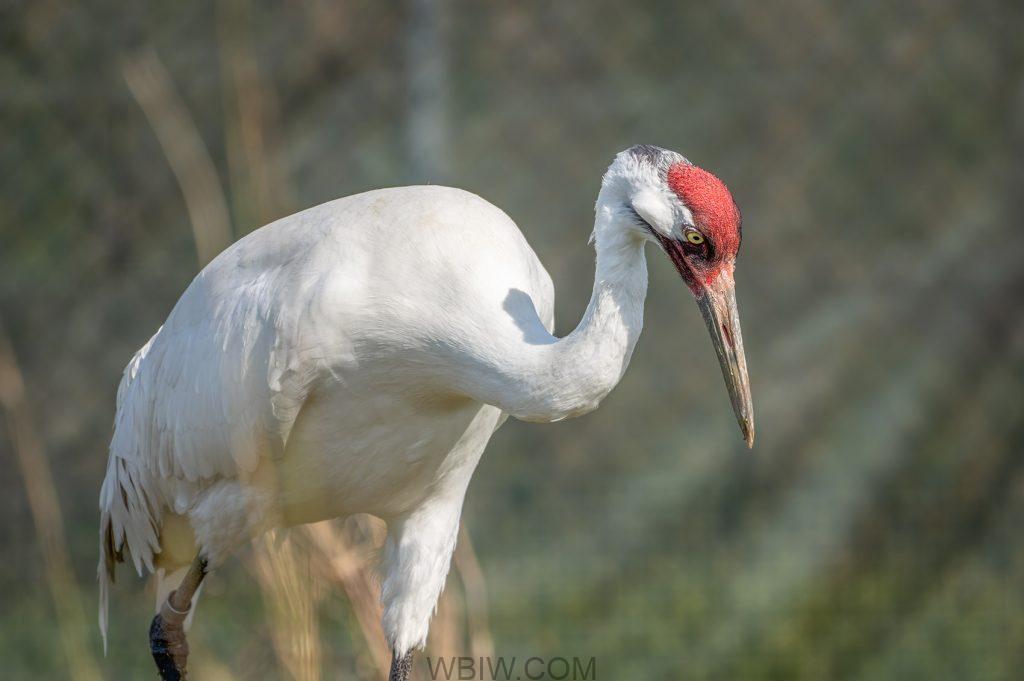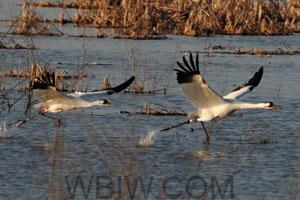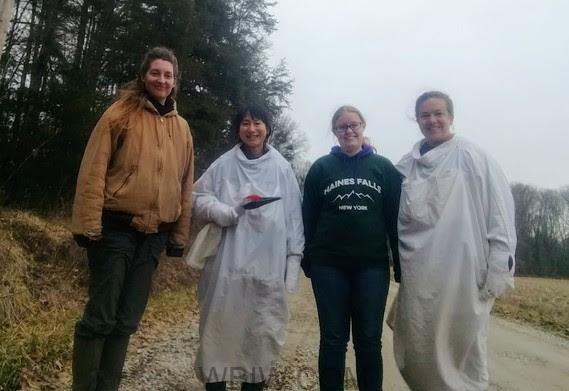
INDIANA – The whooping crane is one of the rarest species in the world with only around 850 individuals found globally. Despite this rarity, Indiana provides temporary pit stops for migrating whooping cranes and a winter home to around 30 whooping cranes each year.

These birds that migrate or winter in Indiana belong to the eastern migratory population, which was once extirpated (extinct) in the eastern United States. In 2000, efforts to reintroduce migratory whooping cranes to the eastern U.S. began. Due to the tireless efforts of biologists dedicated to the conservation of this species, the population is currently around 80 cranes.

Birds in the eastern migratory population are marked with unique colored band combinations on their legs, allowing biologists to identify individuals from a distance. Some birds also carry satellite or radio transmitters that are used to track migration, but these devices have limited lifespans and must be replaced.

This past year, Indiana DNR ornithologists and whooping crane biologists from the International Crane Foundation successfully captured two whooping cranes and replaced their broken transmitters and old bands. Biologists wore whooping crane costumes to conceal themselves and prevent cranes from becoming familiar with people, which could put them in danger. With the new transmitters, biologists can better track these cranes, which will improve our understanding of crane movements during the winter and the threats cranes face throughout their lives. Indiana DNR plans to continue assisting with capturing and tagging whooping cranes each winter. To support this important work, donate to the Indiana Nongame Wildlife Fund.
You can double your positive impact on whooping cranes by educating friends and family about this species. Keep a distance of at least 100 yards when viewing them (roughly the size of a football field) to minimize disturbing the cranes. If you see any activity that attempts to harm or disturb these rare birds, call the DNR “Turn in a Poacher” hotline at 1-800-TIP-IDNR.
For more information click here.



